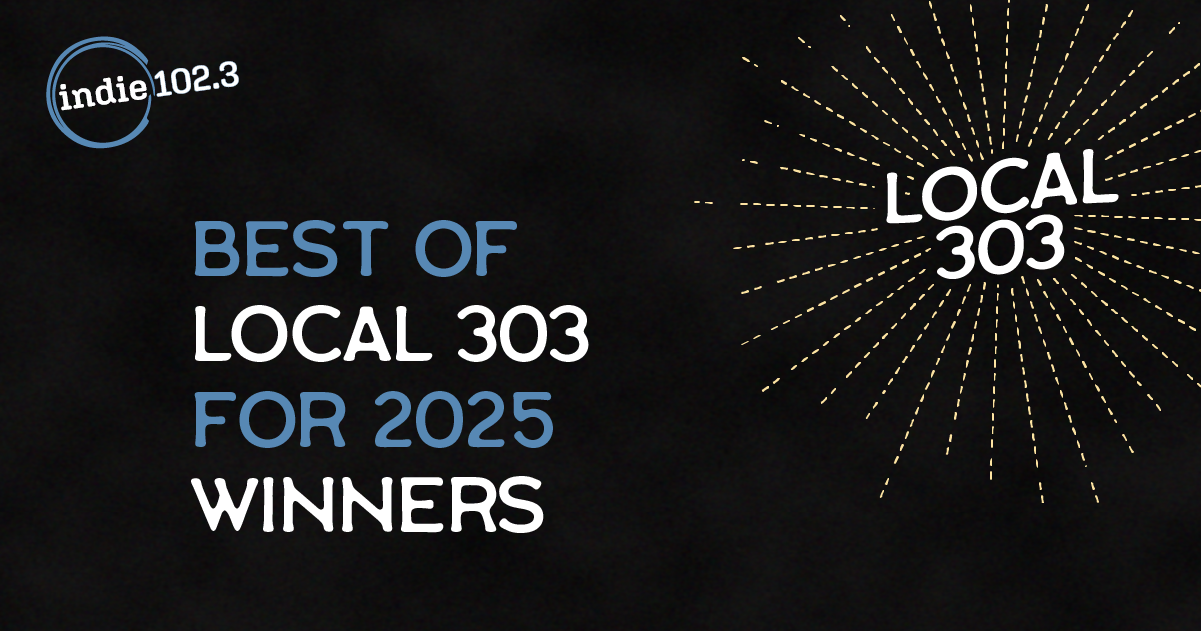
This is part of an occasional series looking at aspects of Colorado’s faltering economy.
Look for recession indicators, and suddenly you might start seeing them everywhere.
The U.S. stock market strung together consecutive days of losses last week despite a better-than-expected jobs report, a strong earnings report from one of the nation’s biggest tech companies and the end to the government shutdown.
Brian Lewandowski, executive director of the Business Research Division at the University of Colorado’s Leeds School of Business, says anxious Coloradans will have to look beyond the swings of the stock ticker to forecast an economic slowdown.
“My personal opinion right now, looking at the data, is that we're not in a recession. As a nation, you can have states that are going through their own little business cycles. You can have industries that are going through their business cycles, and you have individuals that are impacted in many different ways,” Lewandowski told Colorado Matters Senior Host Ryan Warner. “So you've got some people who might be out of work right now or people who are struggling to make ends meet, and so the economy probably doesn't feel great to everybody right now, but when we take a look at the broad data, it doesn't necessarily suggest that we are deep in a recession at this point.”
However, it is possible that Colorado’s economy could revert to the mean in the coming months. Lewandowski said the state so greatly outpaced other U.S. economies over the last decade that some contraction is to be expected.
“It's hard to maintain the sort of fast growth-on-growth that we were having for so many years,” Lewandowski said.
Lewandowski sat down with Colorado Matters for a discussion that included labor shortages caused by deportations, Colorado home prices and what all of it could mean for a possible recession.
This interview has been edited for length and clarity.
Ryan Warner: I'm seeing words like “volatile” and “wobbly” to describe the stock market. Have we seen enough? Are we in a recession?
Lewandowski: I don't think there's real clear consensus on if we're in a recession. There's a whole host of factors that go into deciding if we are. My personal opinion right now, looking at the data, is that we're not in a recession. As a nation, you can have states that are going through their own little business cycles. You can have industries that are going through their business cycles and you have individuals that are impacted in many different ways. So you've got some people who might be out of work right now or people who are struggling to make ends meet, and so the economy probably doesn't feel great to everybody right now, but when we take a look at the broad data, it doesn't necessarily suggest that we are deep in a recession at this point.
Warner: Now to this question of teetering, are we seeing indicators that one might be nigh?
Lewandowski: Again, I think the data's mixed. So I think when we take a look at some of the broad indicators, such as GDP growth, we had a really strong quarter in the second quarter. We were supposed to have the third quarter data by now, and it was delayed by the government shutdown, but expectations are that it was another fairly strong quarter of growth. The one indicator that I am continually looking at that we've got a glimpse of is the national jobs report. And that made a little bit of an about-turn and posted decent growth for the month of September. Then other indicators that we're looking at are consumption and national retail sales (which) continues to climb. So we see consumption up. We see a little bit of elevated inflation right now, but as we sort of take a look at this basket of metrics teetering, I wouldn't necessarily say that we're teetering on recession.
I think there are factors, though, Ryan, that could tip us there. I think a factor that can push us a little bit closer to a recession is if we see employment start to really evaporate, and we had signals of that in June and July, and August, where we had pretty slow job growth, and then it rebounded in September. And just to give you an indication of what that is: For the first nine months of 2025, the average job growth nationally per month was about 76,000 jobs compared to the same period a year ago. We had 154,000 jobs added per month. So this pace of growing jobs has been cut in half in a single year, and this is the slowest pace of growth that we've seen really since the pandemic. So I think that's a little bit worrisome that we see slow job growth. I think there's also reasons for this: immigration policy constraining labor supply a little bit, and then also we hear from businesses over and over again about this period of uncertainty that we're in, and perhaps that period of uncertainty is causing businesses to pause a little bit on hiring, pause a little bit on investment within the economy.
Warner: Can we go maybe a little deeper into this notion of immigration enforcement making a dent? How did you phrase that?
Lewandowski: On labor supply?
Warner: Yeah. Translate that for us.
Lewandowski: So the growth of that labor supply has partially been filled over the last several years by immigration. H1B visas, very high-skilled people coming into the country and working — for instance, at universities — they become part of the labor supply as well. Perhaps as some of the undocumented workers, it's sort of hard to understand where they're captured in the data.
Nonetheless, if we are staving off that immigration into the country through these visa programs, that has a limiting factor on growth in our labor supply. We already have a pretty slow population growth within the country, so thinking about retirees and slow population growth, we have a demographic headwind that will impact labor supply, not just in the short term, but in the long term. The question there is how will we fill the jobs in the future with a limited growth in labor supply?
Warner: At the beginning of this conversation, you said it's possible that there are these state-level economies that function, that look different from maybe the country as a whole or the global economy. So what do you see when you look at Colorado?
Lewandowski: First, when we take a look back over the long term to the great financial crisis that really wrapped up around 2010, Colorado emerged from that as one of the strongest economies in the country, and so by almost any economic metric for about a 15-year period, Colorado was among the top five states nationally.
Warner: I remember those days, Brian.
Lewandowski: Right? And so then we take a look at a short term, just one year, and our rankings look a lot different. So for real GDP growth, we're more in the middle. We're 22nd in the country. For employment growth, right now we rank 34th. For personal income growth, we rank 29th.
There's a little bit of a positive story here. One is that all of these metrics are growing, so Colorado is still in a growth cycle, and also, when I compare Colorado's one-year growth today to Colorado's one-year growth a year ago, our ranking has improved for some of these metrics. So we may still have a slower growth rate than we had a year ago, but we've sort of improved in our relative standing for some of these indicators.
Warner: Is it possible that things were just so good for so long that you plateau at a certain point. Or if not plateau, that the growth slows?
Lewandowski: We kind of think about this. It's hard to maintain the sort of fast growth-on-growth that we were having for so many years. For instance, from around 2010 through 2023, Colorado had the fastest home price appreciation in the country. Our roughly average growth rate over that period was about 6%. Six percent growth is not a sustainable growth rate for home prices in perpetuity, and we see the other side of that a little bit with home affordability in this state. So now, when we take a look at home price growth year-over-year in 2025, we’re 50th, it's still growth. It's still about 1% growth year-over-year, but instead of being first like we were over that sustained period of time, we're now last in terms of home price growth.
Warner: I can hear people say, “Thank God, cool it already,” especially the ones who want to buy a home.
Lewandowski: Yeah, if you're from the outside looking in, you sort of welcome this slower home price growth.
Warner: I want to talk about a few other specific factors because we invoked immigration. Tariffs, the shutdown, how do those affect the economy? Do we know that yet?
Lewandowski: There's indications of how some of these disruptions have impacted the economy. So at the national level, what we saw in the first quarter of this year was this phenomenon of front-running the tariffs. This huge wave of imports as companies were trying to get goods into the country before tariffs took effect, that actually ended up dragging down first-quarter economic growth and we saw that normalize in the second quarter. And so those are some of the distortions that we can see and we can measure.
What we've also seen is a decrease in federal employment, and this is something we can measure within Colorado. We know that our federal employment is down about 2,700 jobs year-over-year within the state. With the government shutdown, we really went through this blackout period with public data, so there's sort of indications of the disruptions, but the economic impact of that hasn't really been measured. When I do a rough estimation, Ryan, of the impact of federal workers not being paid, it costs about $15 million a day in income in Colorado. Just as those 40-some-thousand employees are not earning their daily wages,
A lot of that, with the budget resolution, a lot of those wages will be paid back. So some of the things that those workers maybe would've been buying but they held off on, right, such as going out to restaurants or taking a vacation and staying in the hotel, those offerings expire, right? You can't sort of redo a restaurant sale. But other things are pent-up demand, so maybe they needed to buy a new appliance or something. Those are really delayed purchases, and so with that income restored for those furloughed workers, we should see very little disruption in those delayed purchases.

Colorado’s economy is flashing warning signs. Job growth has slowed to a trickle. Layoffs are inching up. The housing market is in a slump. Both the state and its biggest population center are struggling to plug massive budget holes. On top of all that, the longest government shutdown in history was weighing on the economy.
The big question, though, is whether all the bleak data points to something more serious: recession. And the answer is complicated.
Colorado Public Radio takes a look at what those warning signs might mean through the new series Silent Recession. Read more stories in the series here.









